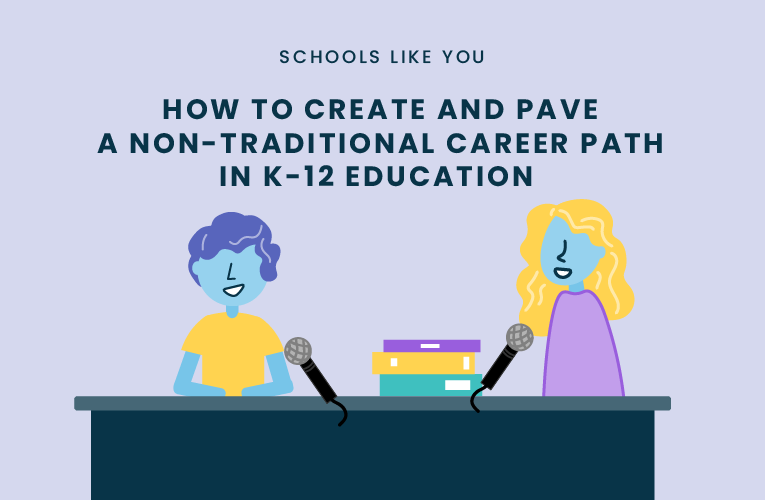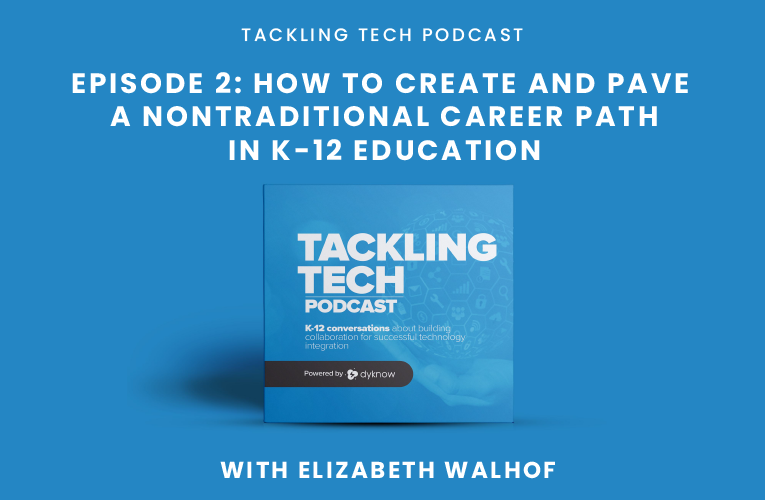Recent global events have shifted the K-12 education landscape as we know it and consequently will change how educators prepare for and refine careers in K-12 education. With non-traditional learning formats and systems becoming critical to the success of faculty, it becomes important to also understand the benefits of a non-traditional career path in K-12 education.
On the most recent episode of Tackling Tech, a podcast powered by Dyknow, Elizabeth Walhof, Assistant Principal at Air Academy High School, joined host Brett McGrath to discuss the current state of K-12 education along with her school’s response and how a non-traditional career in K-12 education has enabled her to adapt and identify areas of improvement during this time.
Listen to the full episode
Elizabeth Walhof’s non-traditional career in K-12 education
Elizabeth’s career in K-12 education has been relatively non-traditional in comparison to the typical path and progression to becoming a Principal or Assistant Principal. Elizabeth started her career as a high school Spanish Teacher and was then recruited to work as a Tech Coach at the district level. From there, her role focused heavily around Professional Development and progressed to become the Director of Ed Innovation for her district. Her final experience working at the district level was as Director of Technology and Director of Professional Development for the district. Since then, she has gone back to the school level to serve as Assistant Principal. This career path for K-12 education is relatively non-traditional because typically educators will work their way to becoming a Principal or Assistant Principal at the school level, and then progress to a Director at the district level.
Starting at the school level in her K-12 career, transitioning to district-level leadership positions, and finally moving back to a school-level leadership position allowed Elizabeth to gain insight into how to be successful on both levels. In turn, the non-traditional path also allowed her to develop tactics for effective communication, collaboration, and team-building between the school and district-level staff. She summarized her learning into 3 key takeaways.

Takeaways from a non-traditional career in K-12 education
Although Elizabeth says that looking back, she can understand that there is a reason why people follow a more traditional path and how that would help them succeed in a district-level role. But, as they say, hindsight is 20/20 and Elizabeth has some very valuable takeaways from her non-traditional path to a school-level career in K-12 education.
1. Quick response time is always appreciated from those at the district level
While working at the district level, Elizabeth grew empathy for the pace that school leaders live at. For district leaders, it takes more time to think about school-level requests and make decisions because you need to take into consideration how it impacts the whole system and corresponding events before giving a final answer to school-level individuals. This could involve checking with the broader cabinet team for alignment. However, school leaders live entirely in the moment, and typically when they reach out for answers it is to put out an immediate fire or issue that needs to be dealt with, so being able to respond quickly at the district level is key for successful collaboration.
2. Understand and connect with district and school leaders to learn from them
Prior to moving into her current role, Elizabeth did not realize how collaborative the principal role is – as she is always bouncing ideas off of colleagues and vice versa. At the district level, if leaders can figure out who those principal “influencers” are at the school level, training become much more manageable. Once those school-wide “influencers” see what needs to happen, and once they understand what it will take to get there, they help to get everyone else in that building on board.
*You can also use the same format at the school level. Find teacher “influencers” at the school level and ask them to try something new out that you want to implement school-wide. They will go forth and share the message with their peers.
3. Create “plug-and-play” resources for faculty and staff to modify
One of the most important takeaways from Elizabeth’s time at the district level is to see what you can provide to be “plug-and-play” resources for people. Teachers, Tech Coaches, and school Administrators can take a template and make it specific to their lesson or need and use it productively. During her time at the district level, Elizabeth really wanted to be going to the schools and working intimately with faculty and staff to make lessons more effective. However, that was not her role – her role was to provide and equip building leaders so that they could then help teachers be most effective. Initiatives go the furthest in a district when they come from a local voice. So, if you have plug-and-play resources available you can save time, maintain efficiency, and increase effectiveness.
To listen to the full conversation with Elizabeth Walhof and learn more ways to maximize a career in K-12 education, especially a non-traditional one, head to the Tackling Tech page. New Tackling Tech episodes launch every Tuesday, and we are committed to sharing stories and resources that will help K-12 educators be successful collaborators and communicators during this time of uncertainty in your career in K-12 education.
Get the latest Tackling Tech news and updates!
Latest blog articles
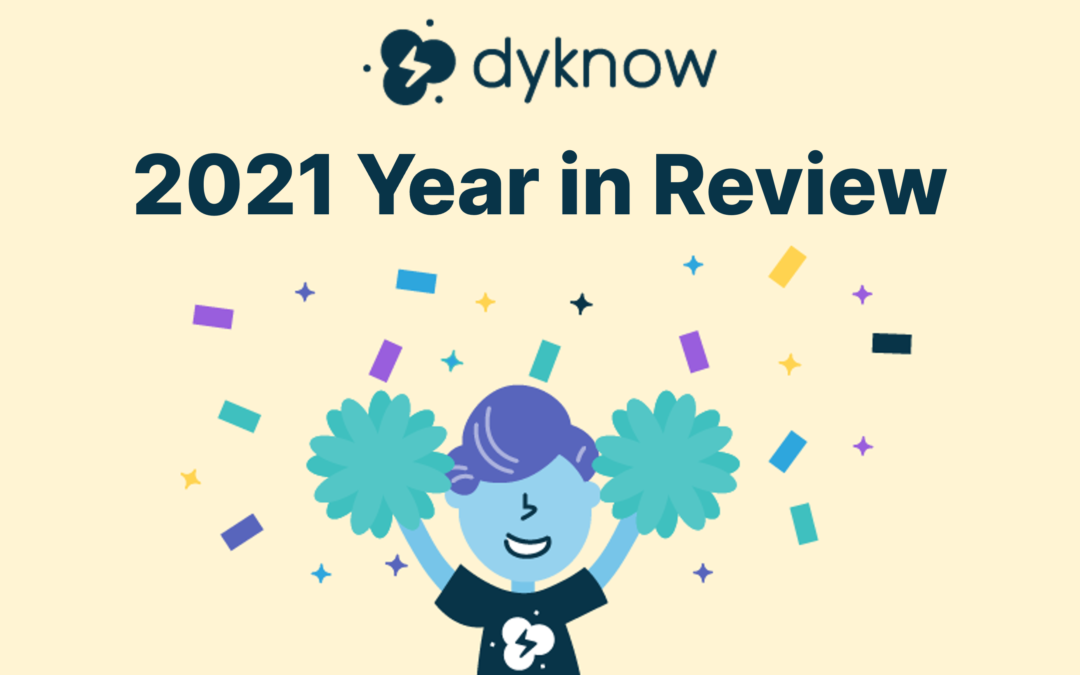
Dyknow 2021 Year In Review
In addition to web browser updates and bug fixes, Dyknow released several major product updates, new features and enhancements. Check out Dyknow’s 2021 Year in Review!
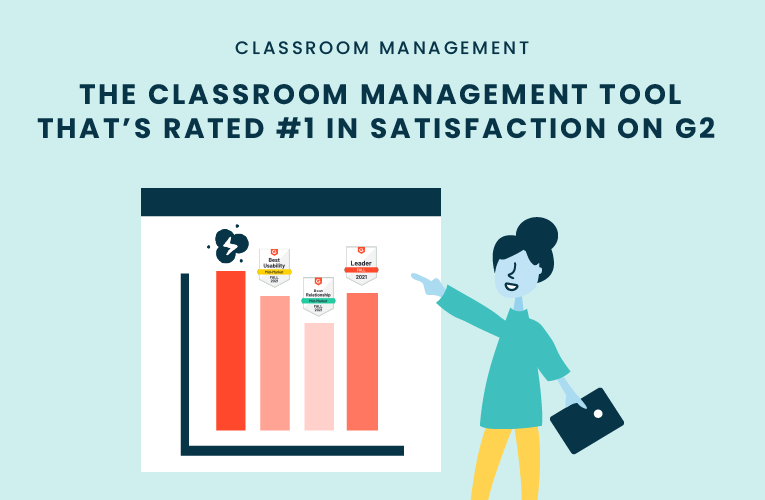
The Classroom Management Tool that’s Rated #1 in Satisfaction on G2
K-12 Administrators across the world trust G2 as the #1 platform to find, research, and choose EdTech tools that solve the most pressing problems their teachers are experiencing. In G2's Fall 2021 Reports, Dyknow was once again rated #1 in overall Satisfaction out of...
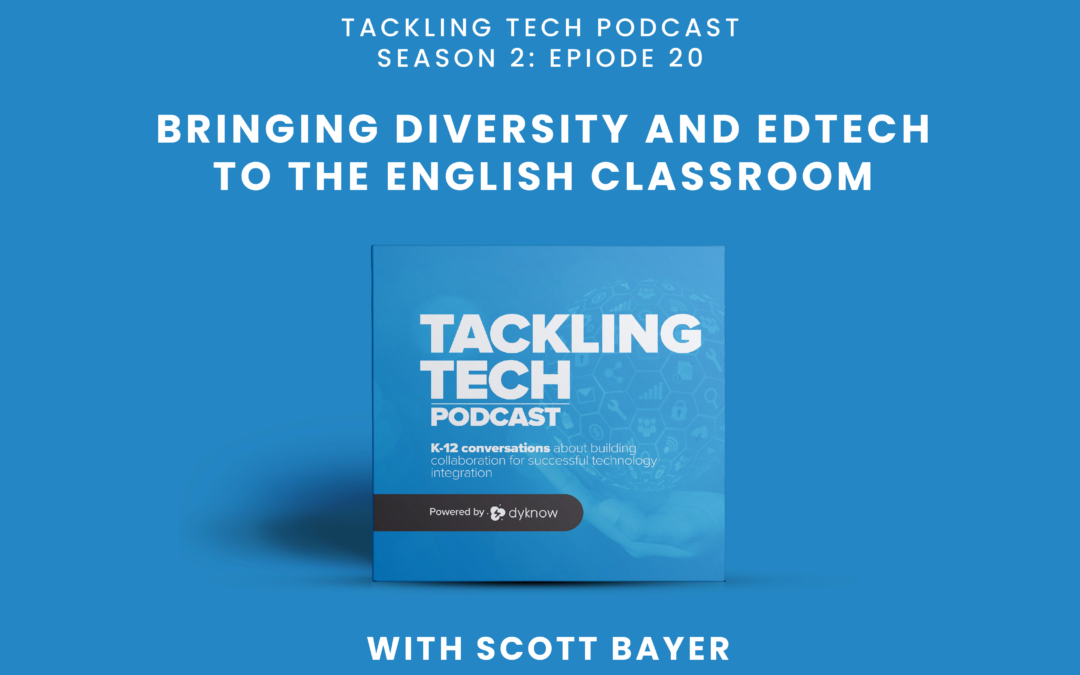
Bringing Diversity and EdTech to the English Classroom
On this episode of Tackling Tech, Tierra Leustig interviews Scott Bayer about being an anti-racist teacher, diversifying reading lists, creating inclusive learning environments, and leveraging ed-tech in non-technical ELA classrooms. Scott Bayer is a High School...

